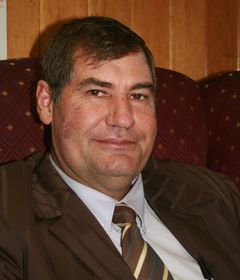BOPA | 06 November, 2009
BOBONONG - Government is committed to improving the agriculture sector.
Speaking during a tour of Talana Farm recently, the Minister of Agriculture, Mr Christian De Graaff said it was worrisome that the country was not using its farmland adequately.
During the presidents recent inauguration speech, he pointed out how important it was for us to improve agricultural production in the country.
It has long worried me that we are a nation that should be producing at least 200 000 metric tones to meet its food requirement, but in recent years we have only been able to produce 30 000 metric tones.
Through the Integrated Support Programme for Arable Agricultural Development (ISPAAD), we have been able to triple production to 90 000 metric tones, but we should do more to reach self sufficiency, Mr De Graaff said.
The minister lamented the fact that only 50 per cent of Botswanas small scale farmland was utilised and some of the commercial land in a poor state.
Yet farmers are not willing to part with land. For instance, in Pitsane at the Barolong Farms, only about half of the 30 000 hacters of farmland is being successfully used, yet most farmers are not willing to sell or lease the land to commercial farmers, Mr De Graaff said.
He added that his mission was to bring in successful foreign investors to lease or buy some of Botswanas most productive land, in order to put it to better use.
He said they would carefully screen the investors to make sure that they were successful and were not running away from failed projects elsewhere.
He said his actions would not be tantamount to giving away Botswanas land to foreigners but more in line with ensuring that the country feeds itself.
Another problem we have is the mindset of punishing people who make a success.
If someone is doing well and wants more land to farm, people will say, he already has enough land.
But most land, even designated as commercial land is underused and those who are productive should be allowed to acquire as much more as possible so we can extend their success, Mr De Graaff said.
Mr Jannie Willemse, the managing director of Talana Farms mentioned that his entity is a joint venture between the his family and the Botswana Development Corporation (BDC).
He said that they have 390 hectors of farmland irrigated from boreholes and 950 ha fenced in for ostrich and other new developments.
He said that they usually have 750 workers during the peak period but only 629 workers were currently under the Talana employ.
He said that 482 were foreigners, mostly Zimbabwean manual workers, while there were 147 locals.
Mr Willemse blamed the poor work ethic among Batswana for the fact that there were 350 more foreigners employed than locals.
But Batswana employed at Talana, who spoke to BOPA on condition of anonymity complained of poor pay while working in what they said was terrible conditions.
They said a meeting with management on October 12 had failed to improve their situation.
Another group said they had just been fired by Talana for refusing to pick up tomatoes and were heading to the Bobonong labour office to raise their complaints.
However, Mr Willemse added that the main challenges faced by Talana Farms were higher input costs than South African competitors, lack of support from traders in general; overproduction; national climatic conditions as well as labour and work permits. BOPA













